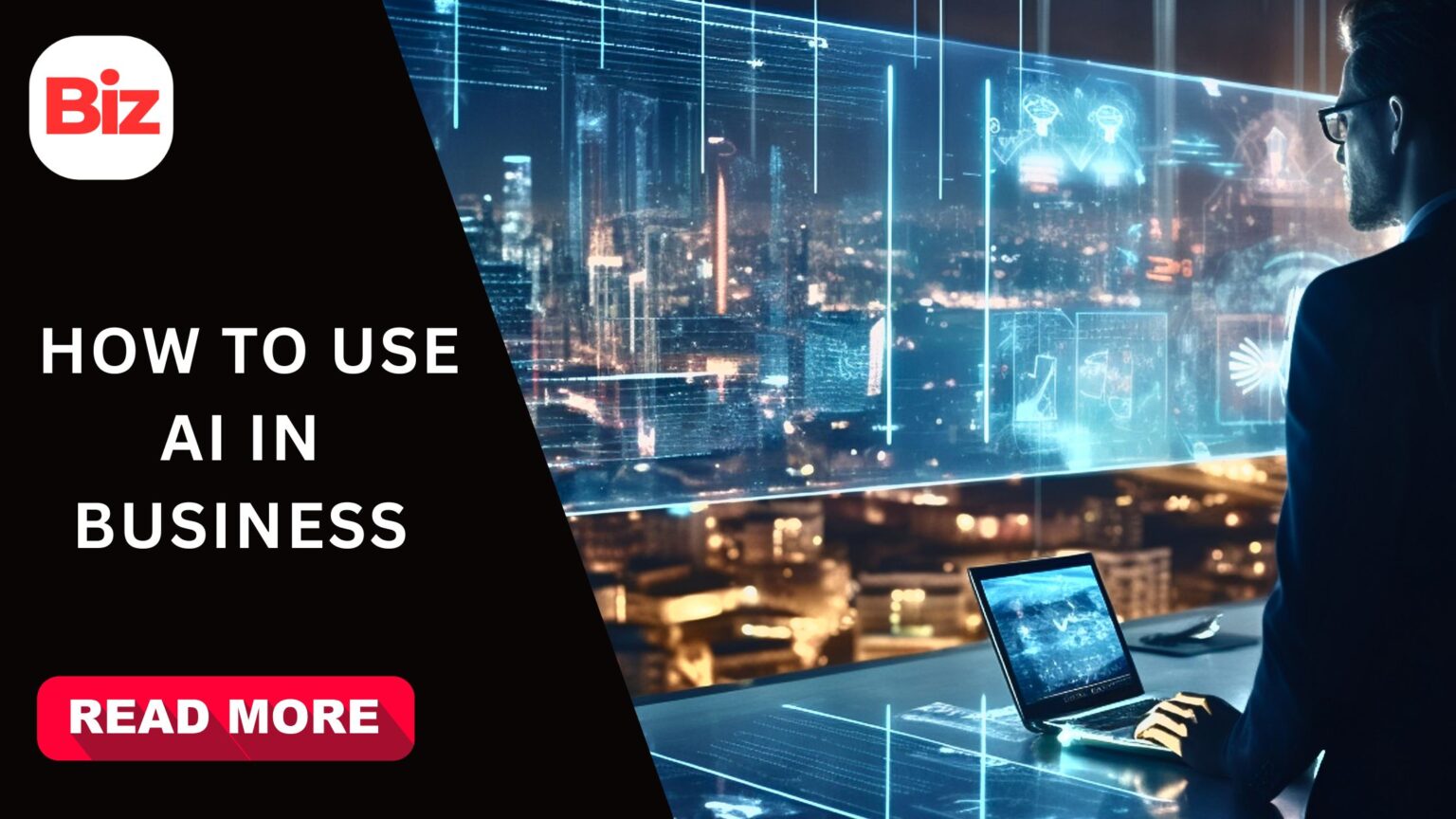- What is AI in Business?
- Why Businesses Need AI Today
- AI for Customer Relationship Management (CRM)
- AI for Employee Upskilling and Training
- AI in Efficient Processes and Automation
- AI using Market Research and Consumer Insights
- AI used in Productivity and Workplace Efficiency
- Creativity and Innovation from AI
- AI for Cybersecurity and Fraud Prevention
- AI for Personalization in Customer Experience
- AI for Decision-Making and Business Strategy
- AI for Talent Acquisition and Workforce Management
- Real-Life Business Examples Using AI
- Challenges of Using AI in Business
- Career Paths and Opportunities in AI
- Conclusion
- FAQs
The recent past has seen artificial intelligence (AI) being the foundation of business. Think of AI as a hyper-wise assistant that does not sleep and paints unremittingly, interprets data, detects trends, and recommends how to work smarter. In the world of business, AI in Business is changing industries by doing the predictive work of what customers desire most, as well as aiding managers to make quicker decisions.
The introduction of AI into business has been on the rise in the early 2010s, with organizations aiming to adopt the latest and greatest to remain competitive in an ever-changing and tech-oriented world. Its impact today is huge in various business arenas such as marketing, supply chain management, financial services, and healthcare. AI can help companies to simplify processes, make better decisions and predict customer requirements with accuracy. It is estimated that the global AI market will expand to 2.74 trillion dollars in 2032 with North America taking the largest market 41%.
The advantages that AI can bring to business are never to be underestimated, and increased productivity, improved customer satisfaction, and considerable cost reduction are just the tip of the iceberg. We will discuss ten real-life examples of how companies are using AI to accomplish their objectives, respond to evolving markets and generate value in diverse industries in this article.
What is AI in Business?
The term AI in business is the utilization of intelligent computer applications that are capable of learning, analyzing, and responding without being instructed on what to do in particular. Imagine that you are training your computer to become a smart consultant who can identify the problems, offer solutions to them, and even do it automatically.
Why Businesses Need AI Today
Competition is tougher than ever. Companies that adopt AI business solutions can:
- Save time by automating repetitive tasks.
- Improve accuracy in decisions with data-driven insights.
- Deliver highly personalized customer experiences.
Without AI, many businesses risk falling behind.
AI for Customer Relationship Management (CRM)
Customer loyalty is built on relationships, and AI helps nurture them:
- Personalized campaigns: Tools like Salesforce Einstein send tailored messages.
- Predictive support: Zendesk AI routes queries faster.
- Chatbots: AI-powered bots provide 24/7 support, improving customer satisfaction.
AI for Employee Upskilling and Training
Employees need to grow as fast as technology. AI helps by:
- Assessing skills and recommending courses (IBM SkillsBuild).
- Providing real-time adaptive training using platforms like Docebo.
- Helping professionals transition into future roles.
AI in Efficient Processes and Automation
Think of AI as a “smart factory manager.” It cuts waste and saves money:
- Supply chain optimization: Blue Yonder predicts demand.
- Document processing: UiPath automates invoices and data entry.
- Energy management: Schneider Electric reduces energy costs using AI.
AI using Market Research and Consumer Insights
Want to know what your customers will want tomorrow? AI can tell you.
- Trend analysis: Crayon tracks competitors.
- Sentiment analysis: Quid reads online conversations.
- Behavior insights: Nielsen predicts buying patterns.
This is where AI for market research truly shines.
AI used in Productivity and Workplace Efficiency
AI is like an invisible colleague who takes care of the little things:
- Meeting assistants: Otter.ai summarizes discussions.
- Smart emails: Gmail’s Smart Compose finishes your sentences.
- Task automation: Trello’s Butler keeps projects on track.
Creativity and Innovation from AI
AI doesn’t just follow instructions—it creates too:
- Generative design: Autodesk designs products.
- Content writing: Jasper helps marketers write faster.
- Video editing: Runway streamlines editing for media teams.
AI for Cybersecurity and Fraud Prevention
With cyber threats on the rise, AI is the watchdog:
- Network monitoring: Darktrace detects threats early.
- Fraud detection: Mastercard prevents fake transactions.
- Endpoint protection: CrowdStrike stops hacker attacks.
AI for Personalization in Customer Experience
Every customer wants to feel special—and AI makes it possible:
- Netflix recommends shows.
- Amazon adjusts prices dynamically.
- Shopify stores use AI to recommend products.
AI for Decision-Making and Business Strategy
Leaders don’t need crystal balls anymore—just AI:
- Predictive analytics: IBM Watson forecasts trends.
- Scenario planning: Azure simulates market changes.
- Real-time decisions: SAP AI helps leaders act fast.
AI for Talent Acquisition and Workforce Management
Recruiting is no longer guesswork:
- Candidate screening: HireVue uses AI to shortlist talent.
- Retention analysis: LinkedIn Talent Insights predicts turnover.
- Bias reduction: Textio ensures inclusive job postings.
Real-Life Business Examples Using AI
Pfizer: Uses AI in drug discovery.
Barclays: Detects fraud with AI.
Amazon: Optimizes warehouses with AI.
Hilton Hotels: Employs a robot concierge, “Connie.”
DHL: Improves package routing with AI.
Challenges of Using AI in Business
AI isn’t perfect. Businesses face hurdles like:
Bias risks in data.
Privacy concerns with sensitive info.
Job disruptions from automation.
Transparency issues with “black box” systems.
Career Paths and Opportunities in AI
AI isn’t just for businesses—it’s also a booming career field:
- AI Engineers – $200k+ average salary.
- Data Scientists, ML Engineers, NLP Specialists – all in high demand.
- Ethical AI experts – ensuring fairness in AI systems.
Conclusion
AI is not a futuristic dream—it’s here, now, transforming industries from healthcare to retail. Businesses that adopt AI gain smarter insights, happier customers, and stronger growth. Whether you’re exploring AI for business intelligence or using AI for market research, the key is to start small, learn, and scale.
FAQs
1. What are the uses of AI by small businesses?
Marketing, chatbots, and automation can help small businesses save time and costs with the help of artificial intelligence.
2. Which AI business solution is the most suitable for customer service?
AI chatbots, such as Zendesk AI or Boost.ai, are a good option for providing 24/7 customer support.
3. Is AI able to enhance business decision-making?
Yes, technologies such as IBM Watson and SAP AI analyze data to deliver insights and assist leaders in making quicker, wiser decisions.
4. Which industries make the most use of AI?
The most popular in AI adoption is healthcare, finance, retail, logistics, and technology.
5. Is AI replacing human jobs?
The automation of repetitive tasks is not the only effect of AI on careers: AI opens new jobs in AI development, data science, and AI ethics.








